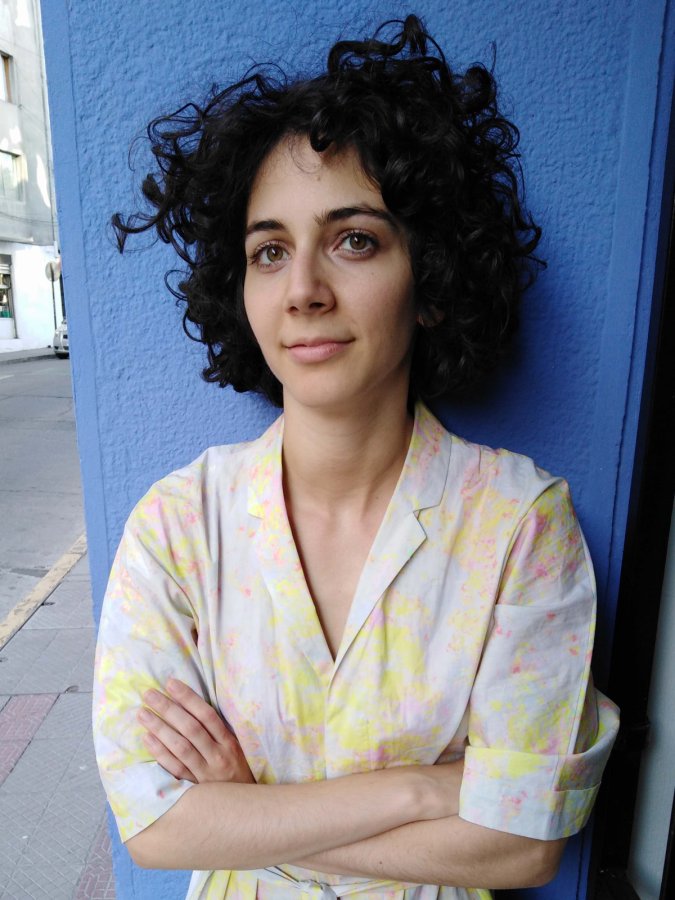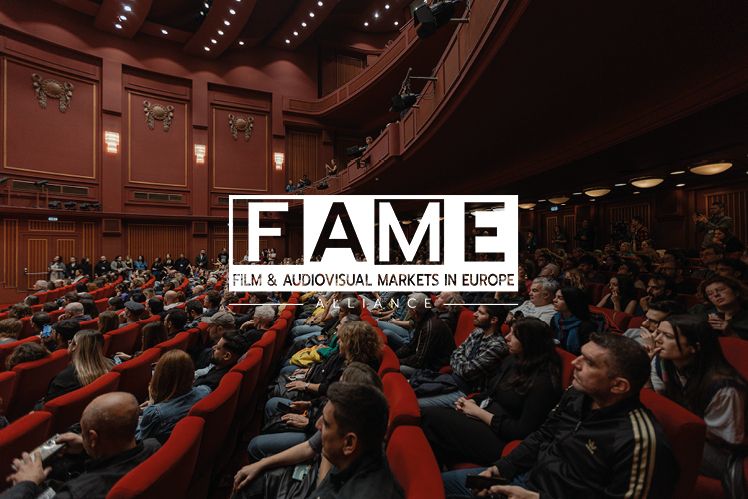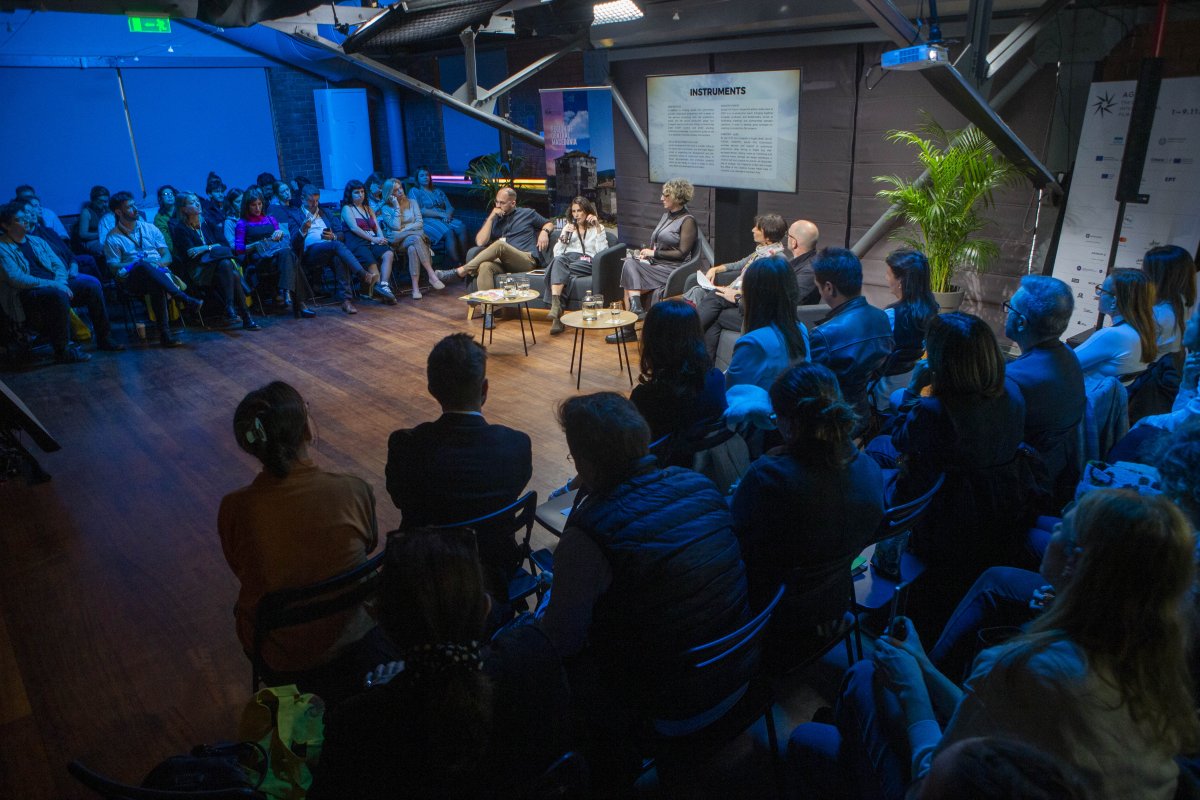Within the framework of the 25th Thessaloniki Documentary Festival, the fourth session of the Climate Hub took place on Monday March 6th, at Warehouse C. As part of the Festival's new initiative towards the goal of sustainability, a series of discussions are held with the participation of leading organizations, teams and experts, focusing on issues of social and environmental sustainability. The keynote speakers at the fourth meeting, titled “Zero Waste Steps”, were the circular economy artist, Lizetta Fotoglou, and the president of the Cosmos DIY association and administrator of the facebook group Zero Waste Thessaloniki, Aravella Salonikidou. The discussion was moderated by the sustainability coordinator of the Thessaloniki International Documentary Festival, Emma Doxiadi.
Initially, Emma Doxiadi asked the speakers to introduce the audience to the concept of zero waste and the philosophy of this practice, but also to explain how the Zero Waste Thessaloniki group started. "Zero waste is a simple, but also a very complex issue at the same time. It has to do with living healthier, eating better. It has to do with our choices. Small choices, like the clothes we wear or the face cream we choose, to much more complex ones," said Ms Fotoglou.
"Zero Waste Thessaloniki is a group that started its actions by chance. Of course, we have been dealing with zero waste for many years, long before the term became fashionable. My pharmacist created the facebook group and because she saw that we became very involved she suggested that we take it over. We created a platform for the world. At the same time, Lizetta runs another group. While they are two different groups, they have a lot in common. We saw that this community is growing; it has needs, it has demands and it is moving forward dynamically, so much so that we have now reached the point where we are doing presentations and consulting on this issue," explained Ms Salonikidou.
The speakers then engaged the audience in a smart and interactive educational game. "We are going to play a game. I have put some words on the table. The words have shapes and numbers. On a piece of paper, you will write down the numbers-words that you are interested in hearing about or the ones that you are interested in telling us something about. The words, as you will see, often seem irrelevant to zero waste. But that is why we are here today. To show that sometimes even irrelevant things are often related and that what seems obvious is not," stated Salonikidou. The audience was able to choose among 19 cards that included terms directly or indirectly related to the concept of zero waste such as Cocoa Powder, Blue Chamomile, Solar Oven, Furoshiki, Food Waste, Appliances on Standby, No Poo, Second Hand, Miswak etc. At first, the audience was interested in learning more about the term “Miswak” and how it relates to the zero-waste philosophy.
"All over the world there are trees, plants and bushes with branches and roots that can be used to clean our teeth. In other words, we don't need toothpaste or a toothbrush, just these sticks. These trees are different on every continent. In Europe, it's the European olive tree. In England, there are miswaks made from olive wood. In Greece, you can find them in shops selling Asian products, mostly from Iran. There are articles and publications on this. We as a community are taking steps with the Aristotle University of Thessaloniki to investigate whether we can create our own equivalent sticks from Thessaloniki. It is a very ecological solution that we can adopt, in collaboration naturally with our dentist. Certainly, however, the bamboo toothbrush with its nylon bristles is not a solution. And our toothpastes often have ingredients that we should not use every day. Generally, it is a common phenomenon in the modern world to use things that are not necessarily the best for us, but are simply those recommended by our culture,” Ms. Salonikidou noted.
Afterwards, the audience wanted to learn about the term Eco Stress and what it represents. "It's a neologism. It is the concern about the next day of the planet, about trees, animals, humans, disasters, pollution. It's a kind of stress that we may have and not know it, an insidious stress that slowly builds up and can become gigantic, reaching such a point that the person feels helpless and does not want to socialize, move forward in life or even reproduce because they feel defenseless in the face of what's happening to the environment. There are works of art and installations around the world on this issue. We have fallen a bit behind because we have other anxieties that are much more urgent!"
At this point, Ms Doxiadi asked the speakers a question about ways to deal with Eco Stress. "Starting from the logic of the saying 'Why are you waiting for flowers? Because I planted them.' After all, contact with the earth heals you. Activism is also a solution, interventions. There you have a tangible result that makes you feel satisfied. One person can even change the world. Why shouldn't we be that person?" stressed Ms Salonikidou. "We must do the best we can without being consumed by the outcome. Let us be the best version of ourselves," added Ms Fotoglou.
Then, in response to a request from the audience, the speakers explained what Furoshiki is. "It is a Japanese term. It is an alternative way of gift wrapping. It shows how we can use fabric to create different designs for gift wrapping, without using paper. Ideally, our gifts don't need wrapping at all. If they do, it can be something different, like a shoebox. Additionally, the gift may be something intangible, like tickets or a subscription, a digital book, or a service," Ms Fotoglou continued.
Next, they explained how cocoa and blue chamomile relate to the zero-waste mentality. "With a spoonful of cocoa powder, we can make a dry shampoo for dark hair, just like baking soda is used for light hair. It's all about grandma's old tricks. It's an example that proves that often something very simple, which wouldn't cross our minds, can give us a solution to something we didn't expect," said Ms Salonikidou.
"Blue chamomile or German chamomile is the alternative to chemical face creams. It is blue, it is not used alone, it is used in a base and four drops are enough for the whole day. It is healing for the skin, it doesn't just moisturize," explained Ms Salonikidou. "Generally, what is good for our skin is also something we can eat. It is good to take care of our skin with products found in our kitchen. Recently, for example, I made a mask from molasses, brown sugar, and a little coconut oil, and it was the best thing for my face and hands. We also have a website to recommend for identifying which ingredients to avoid. It color-codes the ingredient based on its danger level. It is www.ewg.org/skindeep," said Fotoglou.
Then, Ms. Salonikidou also explained the relevance of other terms that are mainly, but not exclusively, related to the zero waste household environment and mentality, offering alternative options for everyday objects. In particular, she spoke about sound absorbing plants, solar ovens, and also rubber-bristled brooms. "Sound-absorbing plants are a variation of vertical gardens in a lighter style. People often do not realize that plants can offer significant noise reduction. The rubber-bristled broom, instead of nylon, does not break easily. It is a hairdresser's or pet's broom and does such a good job that it does not necessarily need to be swept after use. Of course, it is a bit heavier to use. The solar oven can be made of paper (even primary school children can make it), aluminum foil or wood. It can also be larger in size, called a community oven, in which we can cook meals for up to a whole village. They harness solar energy to help us cook within 2-4 hours without spending anything but solar energy," explained Ms Salonikidou.
Afterwards, the speakers talked about the recycling mark on product packaging and what we as consumers should be aware of in relation to it. "We often confuse it with the tax symbol that we see on packaging. The recycling symbol is the characteristic triangle with arrows, which usually has a number inside. From this number we know what material we have in our hands. The most dangerous symbol is the one with the number seven inside the triangle because it indicates something very harmful," Fotoglou said.
"In number seven they have classified all the materials that are left over and are not included in the other numbers. Among them there may be ecological materials, but usually it is one in a hundred. In the triangle you will often find written the word ‘other’. If it is not indicated what this 'other' is, we don't buy the product, because the whole effort is canceled," Ms Salonikidou pointed out. Then, answering a related question from Ms Doxiadi, Ms. Salonikidou spoke about ethical and sustainable fashion, presenting important facts from her long career in clothing production.
"I'm a clothing designer and I've been producing for 30 years in what we call 'ethical fashion', before the term even existed. I was making clothes out of medical gauze. Everything else we used other than gauze we made sure was cotton. But cotton isn't necessarily eco-friendly either, as large amounts of water and chemicals are involved in making the clothes we wear. Later we decided not to buy new cotton, but to get ready-made fabric that has already been produced. In the end I came to the conclusion that all this is pointless. I asked myself what exactly I was doing and what I was offering. Normally nothing should be produced anymore. We have billions of clothes that can be reused and recycled. Ethical fashion for me is to go down a circular path. Upcycling and second hand, for example, is ethical fashion," emphasized Ms Salonikidou. "We generally need to absolve choosing to buy second hand, as well as the exchange of clothes with our friends,” Ms Fotoglou pointed out.
The two speakers also referred to the issue that had arisen in the past with plastic straws and their replacement by paper straws. In response to a question, they explained why paper straws are not a good alternative. "Materials that are recyclable are recyclable in some countries and not in others. For example, the black straws we know are made of polypropylene, which is generally recyclable, just not in Greece. On the other hand, paper straws are not only very unpleasant but also non recyclable. Personally, I have a reusable metal straw in my bag. Of course, the reusable straw is not something new. In the past, we had glass straws in our homes. There are about ten different types of straws that one can use. Generally speaking, solutions do exist," explained Ms Salonikidou.
As Ms. Salonikidou explained, however, the intention of change is not enough, we must also take action. "Often excessive speed and haste lead us to wrong choices. As it happens, for example even in climate-related events, we might encounter single-use plastic cups and straws. Even though they are aiming to make the world greener, they stop at words and do not proceed with actions, with change. Solutions are out there for those who truly have the will. In this field, let’s say, it helps to map the needs of the event and then replace those that need replacing, otherwise we fall into the trap of greenwashing,” explained Ms Salonikidou.
On this point, Emma Doxiadi cited the example of the BAFTAs in the UK, which have created a platform for sustainability. As she explained, one of their regular practices is to check the scripts to make sure that they are getting the right messages about sustainability across. "It would be very interesting to see leading actors in films making such choices. Brushing their teeth with a miswak, say, or a wooden toothbrush instead of a plastic one. In general, however, we have noticed that people now react when they see something environmentally extreme. I recall the case of a Russian company that had filled the ceiling with millions of balloons, placed in a net, which they intended to let fall. People were furious. Our choices must be made consciously. After all, we are parts of a chain. Let's say that anything that has plastic in it, like a water bottle, leaves behind microplastics that are found everywhere and end up back to us. It is up to us as consumers and citizens to demand the best for us and our planet," Ms Fotoglou concluded.
















